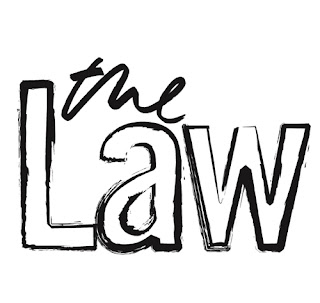The New Man Does Not Require The Law, But The Old Man Does
"But when a man is born anew by the Spirit of God and liberated
from the Law, that is, freed from this driver, and is led by the Spirit of
Christ, he lives according to the immutable will of God comprised in the Law
and, so far as he is born anew, does everything from a free, cheerful spirit."
However, the situation becomes quite
different when we view the believer according to the flesh, which still cleaves
to him, Rom. 7:14-24. According to the old man the believer neither knows the
Law thoroughly nor does he fulfill it willingly, Rom.7:15, but he constantly
opposes and transgresses it, Rom. 7:18.
Luther says (St. L., IX, 881):
"According to the spirit the believer is righteous, without
any sin whatsoever, and does not require the Law; but according to the flesh he
still has sin .... Since, then, sin still exists [in us], Scripture judges us
to be equal to the unrighteous and sinners, so that according to the flesh we must
have the Law just as much as they."
So also the Formula of Concord remarks
(Thor. Decl.,VI, 18 ff.) :
"Since believers are not completely renewed in this world,
but the Old Adam clings to them even to the grave, there also remains in them
the struggle between the spirit and the flesh. Therefore they delight indeed in
God's Law according to the inner man, but the law in their members struggles
against the Law in their mind; hence they are never without the Law and
nevertheless are not under, but in the Law and live and walk in the Law of the
Lord and yet do nothing from constraint of the Law."
Together with the Gospel the believer must
therefore also use the divine Law, namely,
- as a curb, to crucify his evil flesh, Rom. 8:7; 1 Cor. 9:27;
- as a mirror, which constantly reveals his sins, Rom. 7:7, 13; Gal. 5:19-21; and
- as a rule, according to which he must regulate and direct his whole life, Gal. 5:22-25.
There is, of course, no contradiction
between such passages as 1 Tim. 1:9: "The Law is not made for a righteous
man" and those which apply the Law in all its uses to the Christian, e.
g., Rom. 7:23-24; 1 Cor. 9:27; etc. In the former passage the Christian is described
according to the new man; in the latter, according to his old, corrupt nature.
Luther rightly says: "Ein Christ ist zwischen zwei Zeiten
geteilt. Sofe·rn er Fleisch ist, ist er unter dem Gesetz~· sofern er Geist ist, ist er unter der Gnade." (Cp. St. L., IX, 452.
880.)
Conversion and sanctification are therefore
the result of the cooperation of the Law and Gospel. The preaching of the Law alone results in
hypocrisy or despair; the preaching of the Gospel alone results in indifference and security. (Cp. Luther, St. L.,
V, 988; also Dr. Engelder, Dogmatical Notes.)
_______________
Excerpt Take From: John Theodore
Mueller, Christian Dogmatics: A Handbook
of Doctrinal Theology for Pastors, Teachers, and Laymen (Concordia
Publishing House, 1934) , 478-480.
For a more thorough treatment of this subject refer to F. Pieper's segment on this subject by CLICKING HERE.
To read more on this subject check out the article, "Does The Christian Need God's Law For Christian Living?"
To join in the conversation on Facebook, CLICK HERE.
For a more thorough treatment of this subject refer to F. Pieper's segment on this subject by CLICKING HERE.
To read more on this subject check out the article, "Does The Christian Need God's Law For Christian Living?"
To join in the conversation on Facebook, CLICK HERE.

Comments
And then it is latched onto (the "3rd use") because it is in our nature to do so. And then the trouble starts. The fox is let back into the henhouse.
I know they teach it at seminary, but that doesn't make it right.
"Christ is the end of the law for all those who have faith."
Thanks, friend.